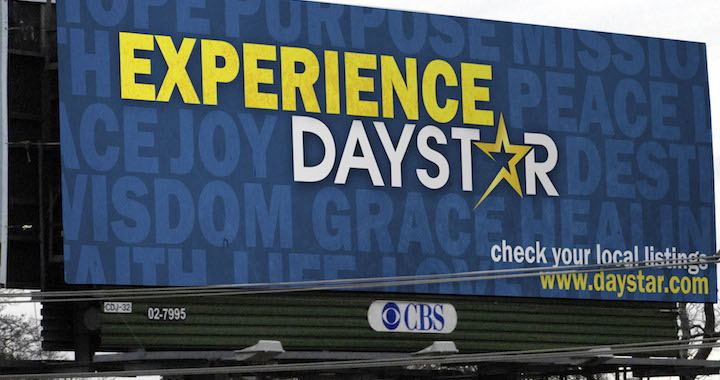I first got to know NPR correspondent John Burnett when he was in Portland doing a story about beer and theology. He was featuring the Beer and Hymns event that we do monthly at First Christian Church in Portland. This time around John has a two-part exposé on evangelical churches in the United States, and in particular, a few of them who have media empires that seem to be immune to the investigations and accountability that so many individuals and organizations in the United States have to the IRS and to the government.
John looked into religious TV networks like Daystar (founded by Marcus and Joni Lamb) that generates tens of millions of dollars a year and operates as a church, according to the IRS code. They sell airtime to other ministries and operate for all intents and purposes like many other media empires. At the same time, they bear few, if any, markers of what we traditionally understand as “church, ” in that they have no worship services, they do not perform weddings, funerals, baptisms and the like.
So what does it matter? Aside from claiming nonprofit status – which means the media company is exempt from paying taxes on its revenue – Churches in particular have extra layers of protection from government oversight with regard to their financial operations.
Related: Destructive Donations?
According to Burnett, in an interview he offered on our Homebrewed Christianity CultureCast, a church “doesn’t have to tell anything to anyone. Churches are the least transparent nonprofits.” He says that, though there used to be staff within the IRS in charge of auditing churches, that position was eliminated several years ago and never was replaced. As such, no church has been audited by the Internal Revenue Service during those years.
During the investigation, says Burnett, “we found a lot of questionable spending that went on and use of donations (for purposes the public doesn’t know about) because the records are not public.” He goes on to say that a significant amount of the private donations sent in by viewers are directed to various “family interests, ” and to supposed ministry-related expenses that were “definitely questionable.”
The Lambs gave money from their church to various colleges and high schools with which their family has connections, and even to his marriage counselors and the nursing home where his father lives. In one case, Marcus Lamb made a sizable donation to an educational institution that, then, offered him an honorary doctorate in television evangelism, a degree track which does not exist.
There also were many donations that Burnett considered “legitimate, ” including donations to causes in Israel, Bangkok and Uganda. These expenses were the type publicized on the TV network, while many others like the ones noted above, are not released to the public. In fact, Daystar sought a court order to seal their business records so that NPR could not have access to them; their request was denied.
Such accounts stand in contrast to the comparatively meticulous transparency of ministries like those of Rev. Billy Graham, whose nonprofit discloses in great detail where all of their donations are used in a document made available to the public. But because of the political influence churches have in Congress, according to Burnett, this is only a voluntary action, not required by law.
Also by Christian: Pope Francis Calls Out the Church
The result: nearly $500, 000 donated to a NASCAR driver by Daystar to have their network logo placed on his car; massive book buys of Joni Lamb’s most recent book to force it up the ranks of bestseller lists; and multiple personal homes, held in the name of the church, which are valued as multi-million-dollar estates.
“There’s nothing illegal about this, ” says Burnett, “(but) if you say that you are a ministry carrying out God’s will on earth, are you good stewards of this money, and are you using it for the best and highest use? If no one is watching, and if in fact your entire board is comprised of family members and your lawyer, there’s really no one to question how you are you using the money.”

